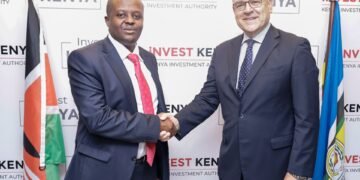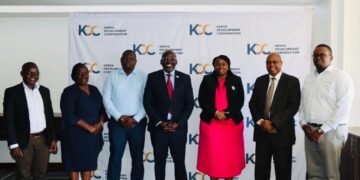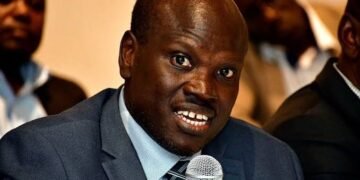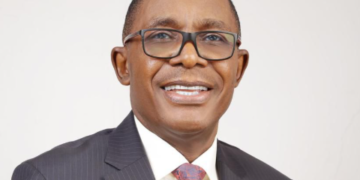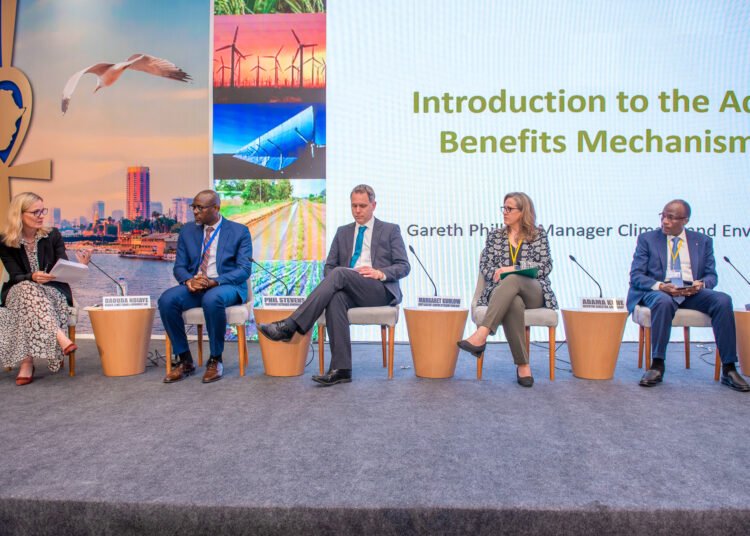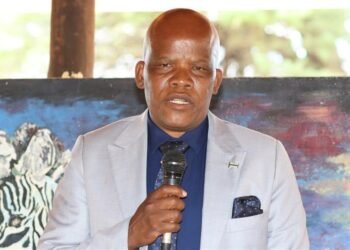Innovative approaches and solutions will be critical to scale up adaptation efforts across the African continent. This includes the African Development Bank-supported Adaptation Benefit Mechanism and the Africa Adaptation Acceleration Program. The latter is a joint initiative between the Bank and the Global Center on Adaptation.
This assertion was made clear in a panel discussion, hosted by the African Development Bank during its 2023 Annual Meetings in Sharm El Sheik, Egypt. The panel of experts highlighted Africa’s urgent need to implement measures to drive climate adaptation, while also stressing a number of obstacles, including the difficulty of measuring and monetizing adaptation efforts.
Speakers included representatives of the African Development Bank, development partners, and development beneficiaries.
Opening the discussion, the African Development Bank Vice President for Power, Energy, Climate & Green Growth, Kevin Kariuki, said climate investments favored climate mitigation over adaptation, but that this was not to Africa’s benefit.
Kariuki said: “Many adaptation projects are small-scale and context specific. The micro, small and medium enterprises that would implement these projects are unable to access the international private funds because they lack collateral or expertise to apply.”
Climate adaptation projects typically yield little cash flow, although they deliver hard-to-monetize public goods. “The donor community has been seeking adaptation metrics to drive efficiency and enhance support, but alas, the metrics for adaptation do not exist today,” Kariuki added.
Under the Adaptation Benefit Mechanism, development partners, consumers, funds and philanthropists will sign purchase agreements for Certified Adaptation Benefits. Project developers will use these as collateral to raise private sector debt, equity and in-kind contributions.
Adaptation Benefit Mechanism projects will also incorporate an approved methodology defining the expected adaptation benefits and enabling certification of outcomes that lead to the achievement of desired impacts. The program was launched in a pilot phase in 2019, and two pilot projects are under development: one for climate resilient cocoa in Côte d’Ivoire, and another for rapid deployment dams to counter flooding in Lagos, Nigeria.
Highlighting that the Bank has a number of live adaptation initiatives which are ready to receive contributions, African Development Bank manager Gareth Phillips said the Bank was working to raise as much as $50 million in funding to capitalize a new fund, tentatively named the “African Adaptation Benefit Fund,” which is expected to be launched at the next global climate summit (COP28) this November. The funds will be used to purchase Certified Adaptation Benefits to kick-start the Adaptation Benefit Mechanism and will also provide technical assistance and support the operation of the Mechanism’s Executive Committee and establishment of a secretariat.
Charles Nhemachena, the Global Center on Adaptation’s Acting Regional Director for Africa, said the Africa Adaptation Acceleration Program is working to mobilize $25 billion over five years to accelerate and scale climate adaptation action across the African continent. He said that over the last two years, the program had “influenced more than $5 billion worth of downstream investments that had been supported through the upstream facility. On example is the African Development Bank’s Banjul port project in The Gambia, for which the upstream facility had provided climate risk testing.

(From left) AfDB VP Kevin Kariuki, GCA Acting Africa Regional Director Charles Nhemachena, AfDB Director Anthony Nyong and AfDB Manager Gareth Phillips during a session on the Adaptation Benefits Mechanism
Development partners and beneficiaries of African Development Bank initiatives to drive climate adaptation included Daouda Ndiaye, Manager for Climate and Environment at the Islamic Development Bank and a member of the Adaptation Benefit Mechanism’s Executive Committee; Phil Stevens, Alternate United Kingdom Governor of the African Development Bank’s Board; Adama Kone, African Development Bank Executive Director for Côte d’Ivoire; and Margaret Kuhlow, a United States Treasury Deputy Assistant Secretary.
Stevens said the new Climate Action Window of the African Development Fund—the Bank’s concessional lending arm—had created an opportunity for private investors to channel funds for climate adaptation.
During the African Development Bank Group’s Annual Meetings, the United Kingdom announced the launch of two projects under its “Room to Run” guarantee program, a $2 billion guarantee provided to the Bank. The guarantee will allow the Bank to provide an additional $2 billion of climate finance to Africa by 2027, with a 50-50 split between climate adaptation and mitigation.
Kuhlow said that people usually think of energy when they hear the word “climate,” but that in many parts of the world, climate means water: too much or too little. She said the United States was committed to the adaption agenda, with its efforts in Africa channeled through the African Development Bank via the African Development Fund.
Kuhlow explained that President Joe Biden’s administration had launched the President’s Emergency Plan for Adaptation and Resilience (PREPARE). She said its goal was to extend assistance to 500 million of the world’s most vulnerable people. She added that the Biden administration had also committed to support the Adaptation Benefit Mechanism in its 2023/2024 budget.
The African Development Bank is a pioneer among global multilateral development banks in terms of the share of its climate financing that goes to climate adaptation. Its climate adaptation funding increased from 49% in 2018 to 55% in 2019 and 63% in 2020.
The Bank’s Annual Meetings 2023 run from 22-26 May.




